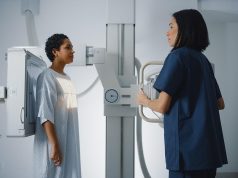CRC cases exceeded expected numbers in patients with late-stage disease and in those aged younger than 50 years, 76 years or older
By Elana Gotkine HealthDay Reporter
MONDAY, April 14, 2025 (HealthDay News) — Recent major events, including hurricanes Irma and Maria and the COVID-19 pandemic, were associated with a decreased incidence of colorectal cancer (CRC) in Puerto Rico, according to a study published online April 14 in Cancer.
Tonatiuh Suárez‐Ramos, from the University of Puerto Rico Comprehensive Cancer Center in San Juan, and colleagues examined the impact of major events, such as hurricanes Irma and Maria and COVID-19, which disrupted Puerto Rico’s health system, on CRC incidence. Data on CRC cases were obtained from 2012 to 2021 using the Puerto Rico Central Cancer Registry database. Changes in incidence immediately after and during the periods after the hurricanes and the pandemic were examined using an interrupted time-series analysis.
The researchers found that in the month the hurricanes struck Puerto Rico, there was a level change of −8.3 CRC cases, corresponding to a 17.5 percent immediate decrease. Following a slight upward trend, there was a second decline of 39.4 CRC cases estimated after the COVID-19 lockdown restrictions, representing a −24.2 percent immediate change. The estimated numbers of patients with early-stage CRC and those aged 50 to 75 years did not reach the expected numbers by the end of the study. In patients with late-stage disease and in those aged younger than 50 years and 76 years or older, CRC cases exceeded the expected numbers.
“Lower incidence immediately after the disasters could lead to more CRC cases diagnosed at later stages in the future, which potentially can lower survival rates,” the authors write. “Understanding the association of these major events with cancer incidence is necessary to develop public health responses, such as proactive planning and preparation to mitigate disruptions in cancer care.”
Copyright © 2025 HealthDay. All rights reserved.








